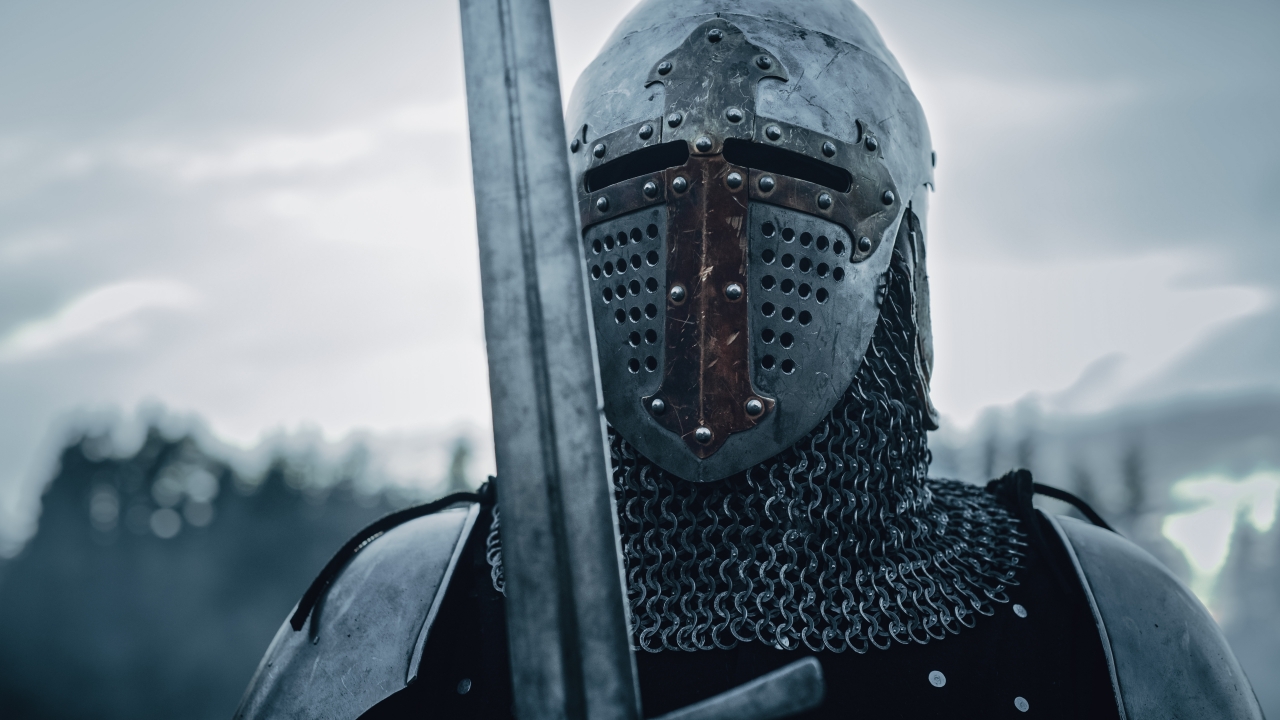
Why the Crusaders Are Inspiring Young Christian Men
If you are a Reformed Christian who has been on social media over the past year, you will notice that conversation about the Crusades has been occurring on a fairly regular basis.
Virtually every conservative Christian male under the age of forty seems to have been newly captivated by historical accounts of the nobles who battled the hordes of Islam. Countless podcasts aimed at this demographic have hosted historians to discuss the Crusades, while some have even devoted entire seasons to the heroes of medieval Christendom. Volumes like God’s Battalions and Defenders of the West have meanwhile enjoyed newfound attention, while more than one internet meme has playfully caricatured the examples of these men.
Yet the emergence of the Crusades as a cultural touchpoint for young Reformed Christians is by no means an attempt to justify the excesses that accompanied the military defense of Christendom, nor the advocacy of vigilantism in response to sociocultural threats. This series of campaigns was, at least arguably, a necessary defensive countermeasures toward Islamic armies who had already conquered two-thirds of the territories previously home to Christians, and who had slaughtered, enslaved, or trafficked innumerable Christian men, women, and children.
This surprising and increasingly potent cultural touchpoint can be broadly understood as a response to our troubled times and an aspiration for a brighter future in the Christian West.
Cultural Subversion and Christian Decline
Consider the historical context into which most young Christian men have been born.
America only recently emerged from the Cold War as the sole superpower on the planet, yet the entire Western world has continued on an extensive decline marked by ballooning national debts and welfare states, unfettered legal and illegal immigration, and an overall sense of purposelessness, all of which have been driven by the quickly decreasing relevance of Christianity. These young men have hardly been helped by these phenomena: the ravages of pornography, the difficulties of securing a decent position in the labor market, and the scarcity of suitable spouses as women become more progressive have left many hollowed and defeated.
Meanwhile our evangelical leadership insist that the decline of cultural Christianity is actually a positive trend and assert that the illegals crossing the border or traversing the seas are to be broadly welcomed as sojourners and refugees. Perhaps most of all, these leaders repeat the baseless cliche that Christians and their identity as citizens of a heavenly kingdom therefore means that the evaporation of our distinct nations and cultural identities is no cause for concern, and that anyone who labors to preserve nation or culture is acting in an unfaithful manner.
The accounts of the Crusades, however, are accounts of young medieval Christian men observing similarly dire straits, then spending their lives and fortunes safeguarding the embers of Christendom from subversion and subjugation at the hands of Islamic armies from the East.
Take, for example, the account of George Castrioti, the son of an Albanian noble who was taken hostage as a young boy to be raised in the Ottoman Empire, forcibly converted to Islam, and trained as an elite Janissary warrior only to be deployed against his own people. The entire time, however, Castrioti kept his Christian and Albanian identities secretly intact, eventually rebelling against his Ottoman captors and mounting a three-decade campaign against them.
Now consider how a character like Castrioti is viewed by a generation of young Christian men who were raised by government schools and taught that the white Christian man is the chief villain of world history, meaning that he has no basis to oppose the open destruction of his own culture. The fact that God created a man like Castrioti with the fortitude to resist similar lies, only to become the chief opponent of the dark forces which sought to enslave his soul, shows that the lies of our day can also be resisted to the glory of God and the preservation of Christendom.
Biblical Masculinity and Martial Virtue
The most damaging phenomenon for young men in our culture has been fatherlessness.
Beyond the reality that one in four children in America are raised by single parents, we also have a dearth of fathers who have actively discipled their sons to embrace masculine virtues and duties, often entrusting that discipleship to youth pastors or government school teachers.
The typical evangelical Christian is not only disconnected from his father and grandfather, but also from his great-grandfathers, in particular the civil and ecclesial fathers who self-consciously laid the foundations of Western society on the firm bedrock of Christian faith and practice.
Yet our forefathers selflessly carried out such labors in the medieval era with a cataclysmic civilizational threat breathing down their necks the entire time. Far from the brief caricature of the Crusaders as greedy mercenaries or misguided oafs provided by our culture, young men who have studied the matter have instead encountered men of both Christian piety and action, who loved and served the Lord in both their prayer closets and in the field of battle.
The men in the modern West are not only morally soft, but also disproportionately physically soft. Yet the men who defeated the Saracens and the Ottomans, often with vastly outnumbered forces, were able to maintain physical fitness that matched their internal moral constitution.
Consider, for instance, Godfrey of Bouillon, a leader of the First Crusade who briefly led the Kingdom of Jerusalem. He possessed noteworthy physical strength, on one occasion successfully wrestling a bear that attacked his men in Anatolia, and on another occasion cutting a fully armed enemy soldier straight across the body, from the shoulder to the opposite hip.
For all his brute force, however, Duke Godfrey possessed a tender heart toward his God. When he had the opportunity to preside over the Kingdom of Jerusalem, he opted for the title Defender of the Holy Sepulchre, refusing the designation of King in recognition that only the Lord Jesus Christ, who had died for sinners outside the gates of that city, may be called King of Jerusalem.
As with even the best of men in history, those who defended Christendom over the course of countless centuries were by no means without their errors, yet these men possessed many qualities that are very much worthy of emulation. They were sincere Christians who embodied a robust faith that drove them to protect their families, nations, and peoples from existential threat.
In a world where such threats to Christian civilization are once more ascendant, we need more rediscovery of these forefathers, and we need more young men who will follow in their train.

